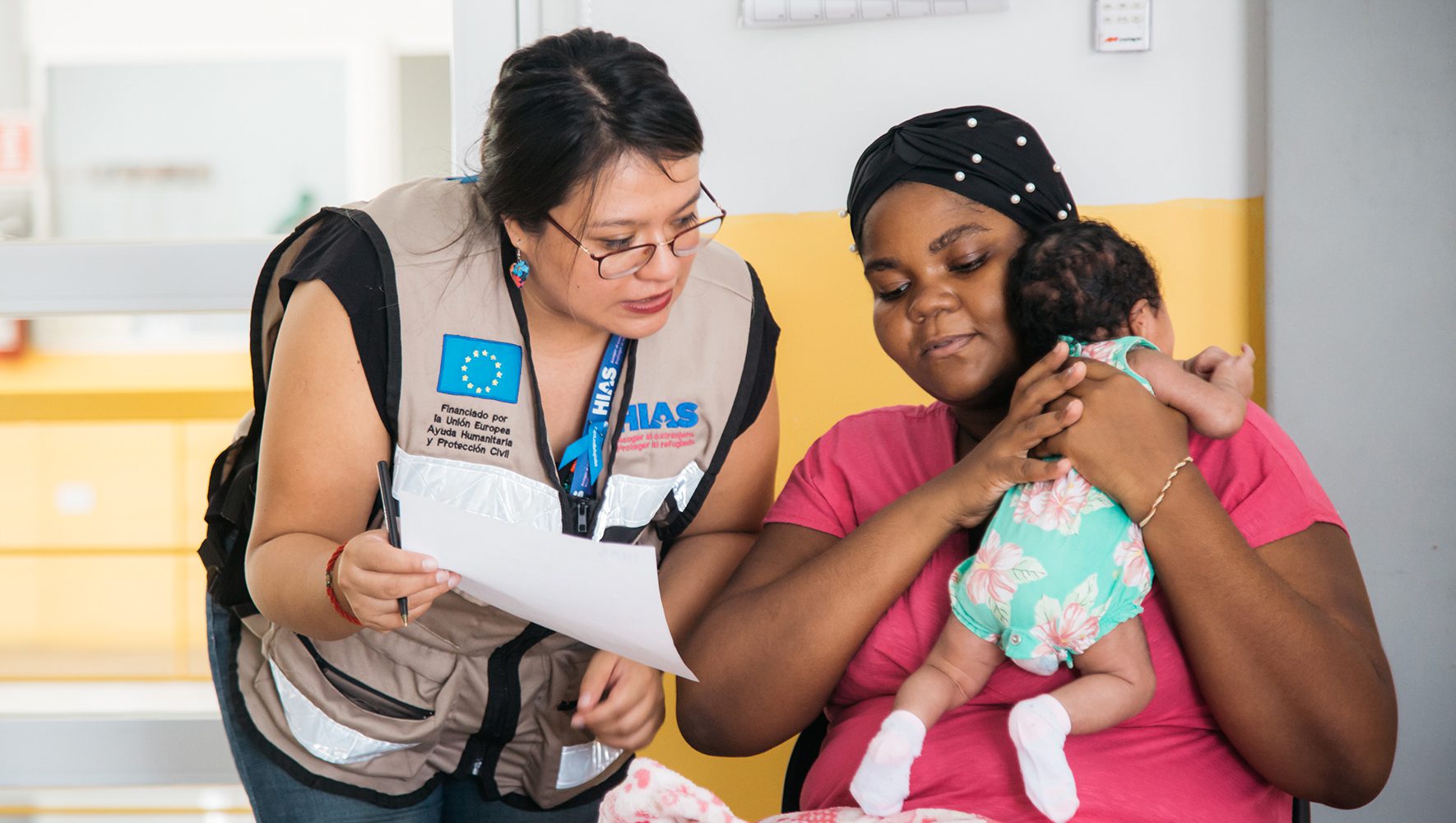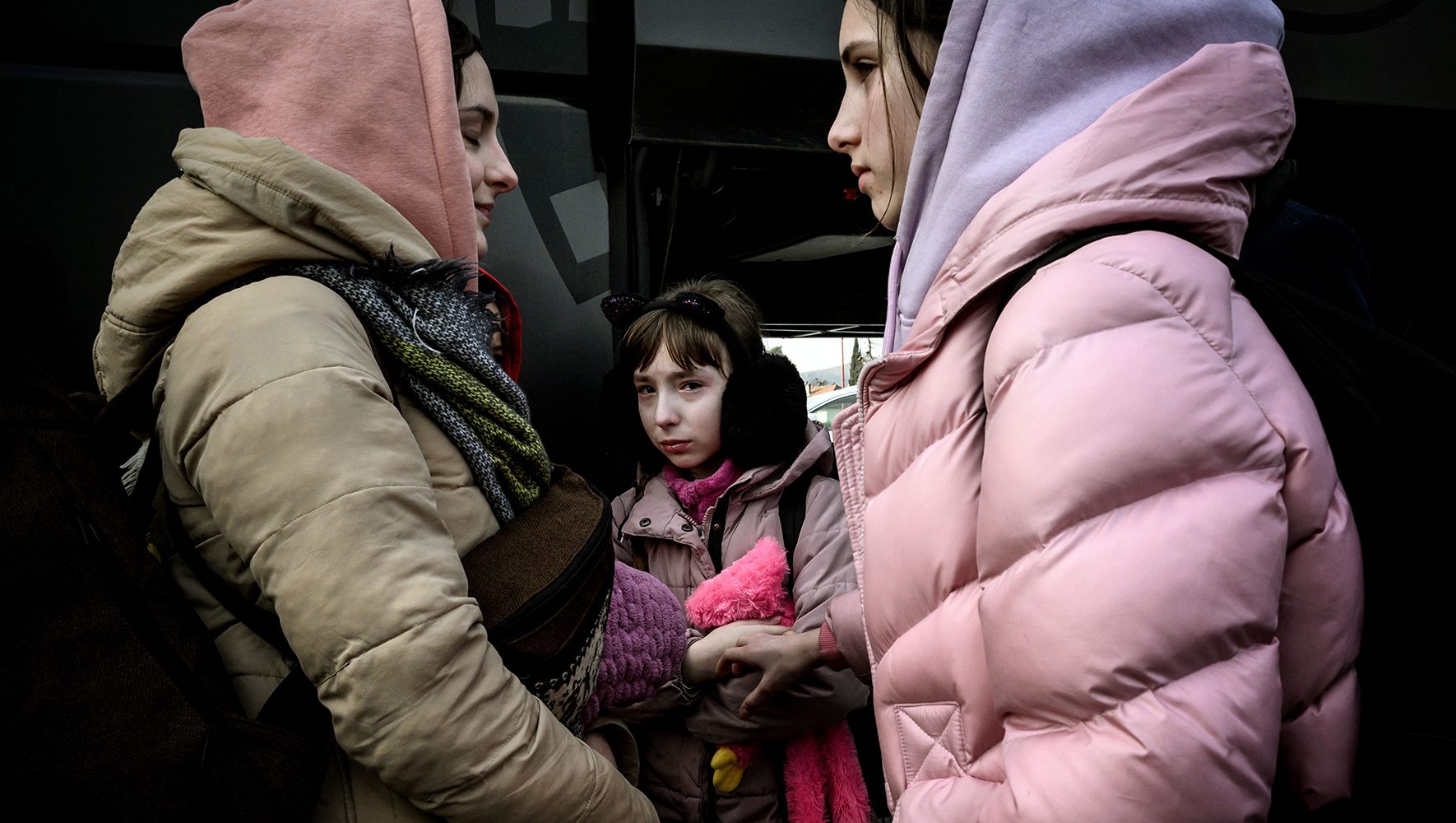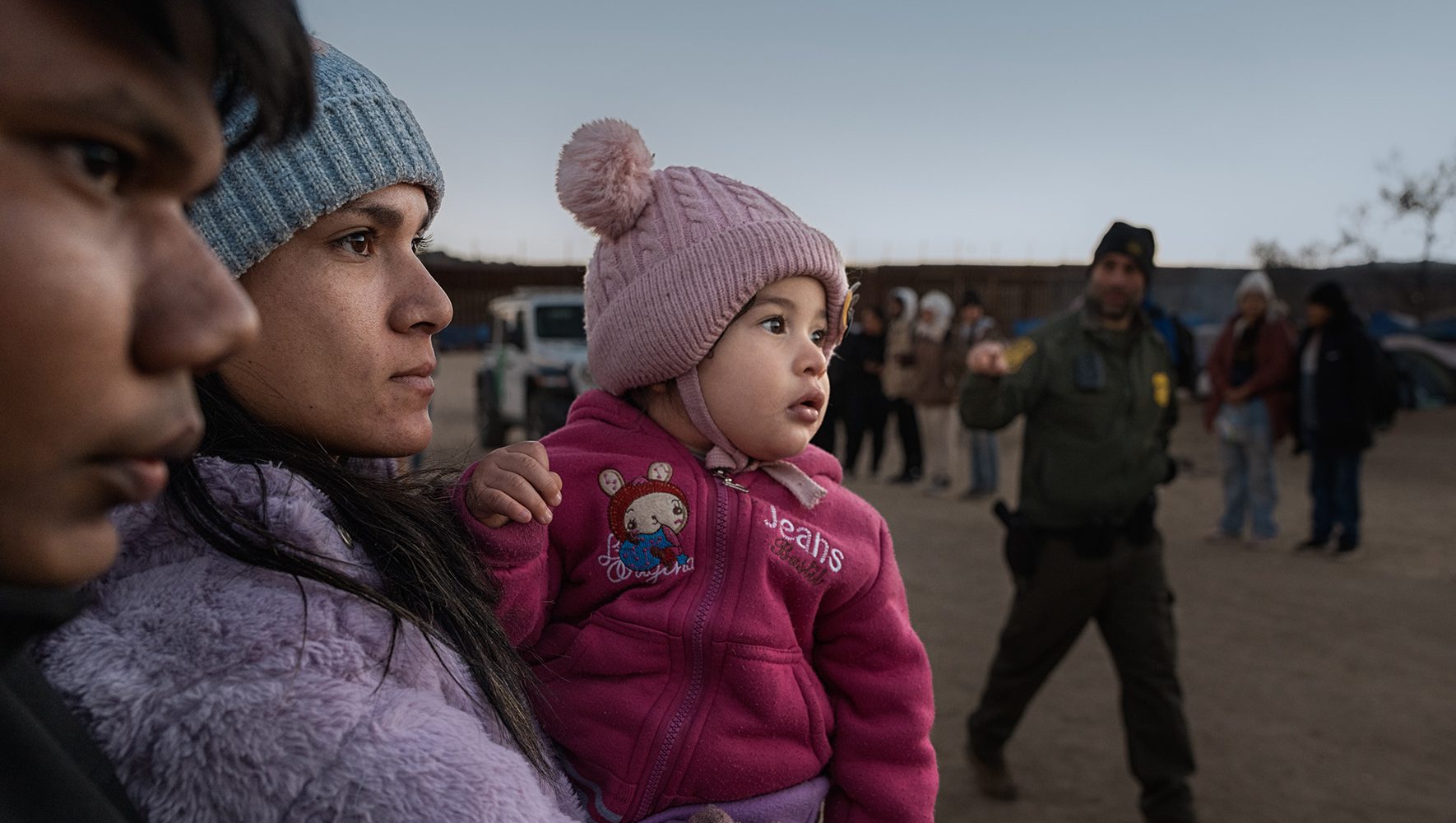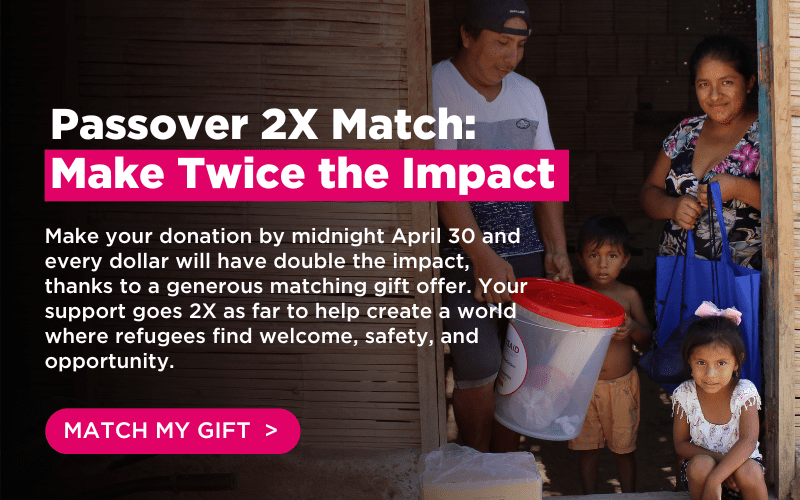Hetfield: Anyone Can Become a Refugee
By Dan Friedman
Mar 25, 2022
The scale of the Ukraine refugee situation — with up to 8 million people now expected to be displaced — is worse than “even the worst-case scenario,” HIAS President and CEO Mark Hetfield said during panel discussion hosted by the Council on Foreign Relations on March 24.
Hetfield called for the Biden administration to quickly “use the refugee program for its intended purpose which is to bring people here and make sure that they have what they need to sit out this period in dignity, to be able to work, to be able to reunite with family and then, if they can’t go back in a timely fashion to adjust to permanent residence.”
Hetfield provided historical context and current observations to the panel discussing that day's Biden Administration announcement that 100,000 refugees from Ukraine would be resettled in the United States. The panel was moderated by Sarah Yager, the Washington director of Human Rights Watch, and also featured Nancy Izzo Jackson, senior official at the Bureau of Population, Refugees and Migration at the State Department, and Amanda Catanzano at International Rescue Committee.
Talking about the seemingly discriminatory exemptions of Title 42 at the southern border meaning that Ukrainians are allowed through but others are not, Hetfield noted that this programmatic exemption to an "illegal" program is “illegal, immoral, unAmerican.”
In response to the question of public sympathy for people who "look like us" — meaning White European — Hetfield commented: "For the people saying 'they look like us' it should not be held in their favor or against them. We have to look at this crisis on its merits and the fact of the matter is that this is an unprecedented crisis no matter what complexion Ukrainians have. But I’m also hoping on the positive side that it’s waking up Americans to realize that really anyone can be a refugee... We’re all created in the image of God... We’re all people, and any one of us can be subject to this level of vulnerability no matter where we are right now … my community has certainly learned that the hard way."






